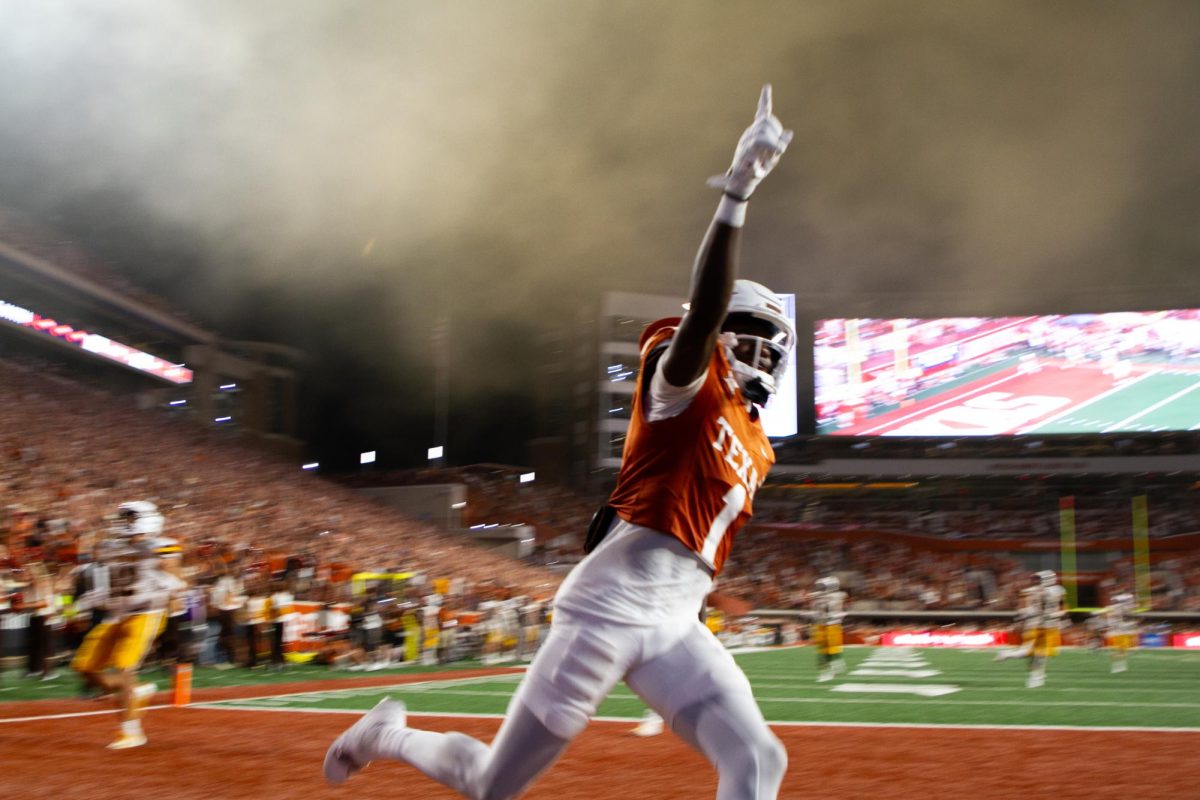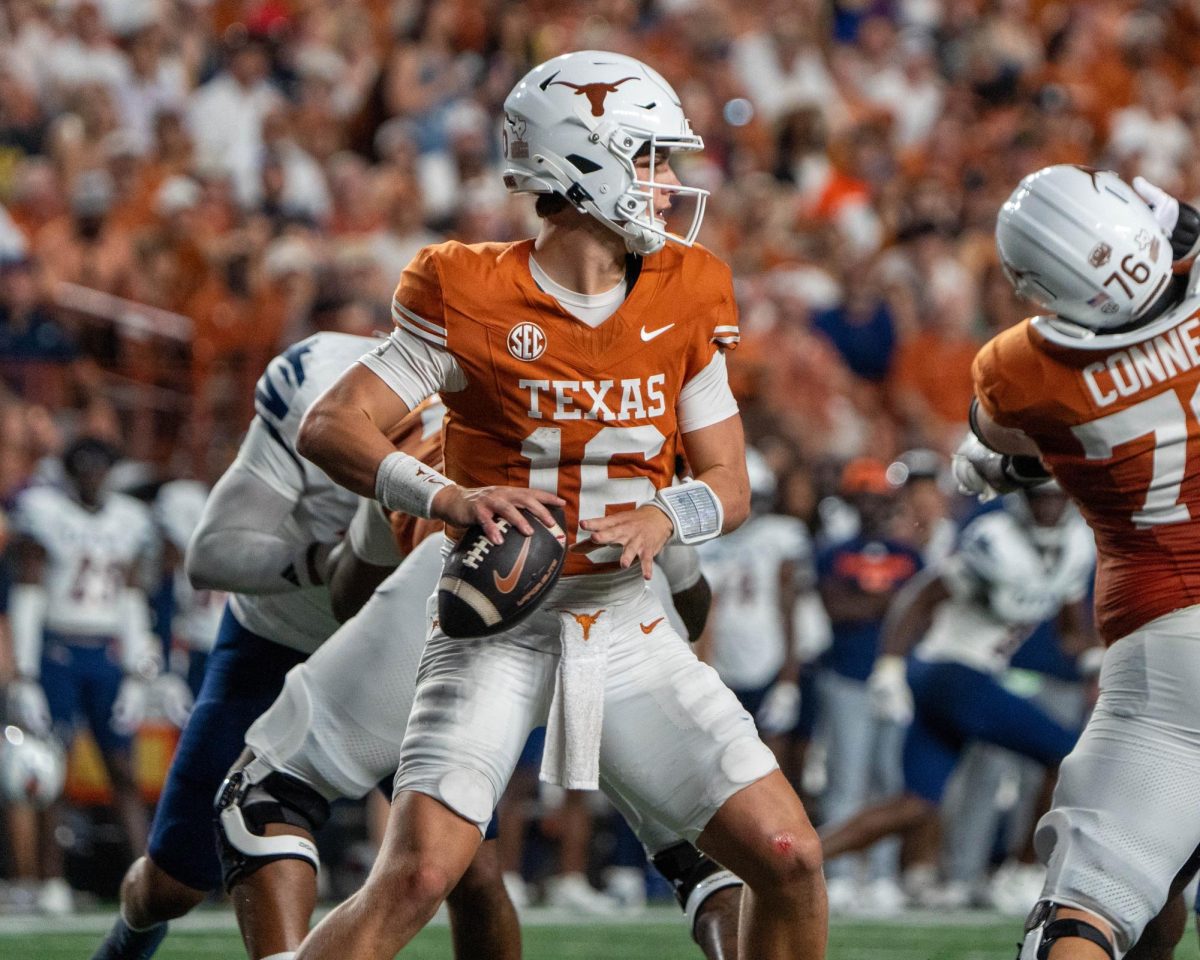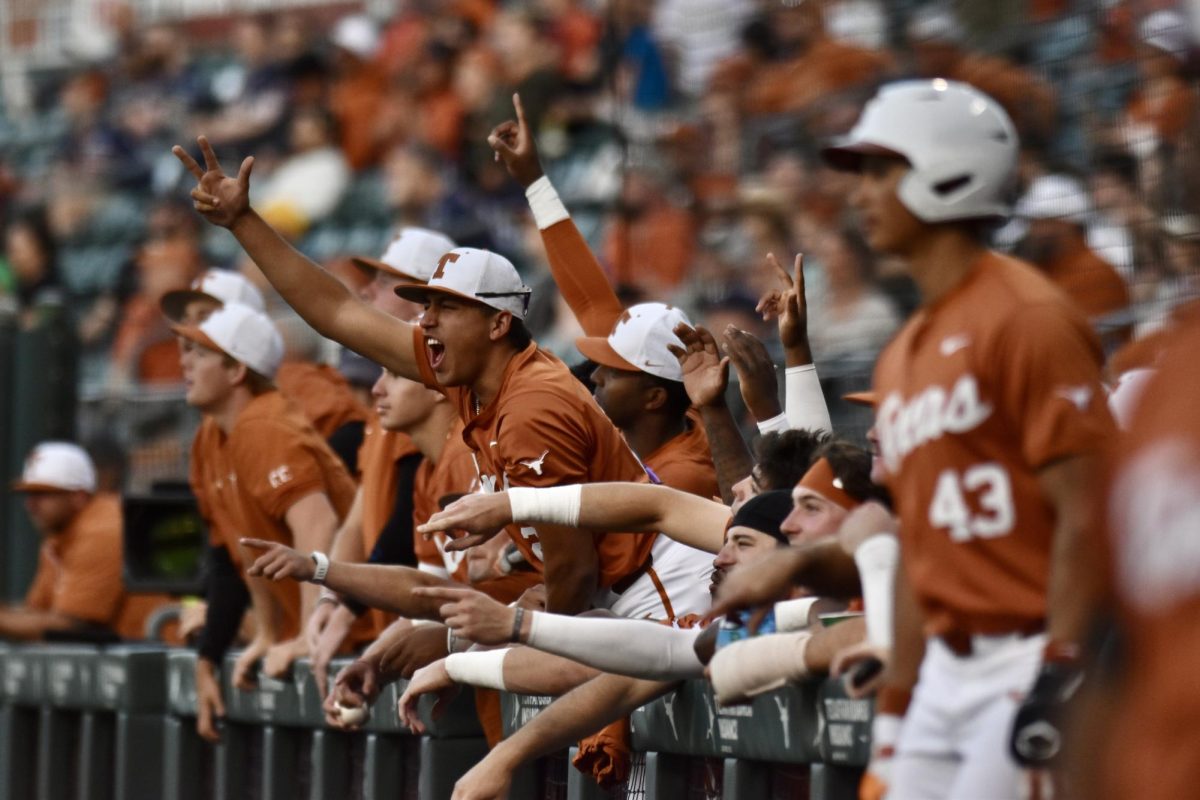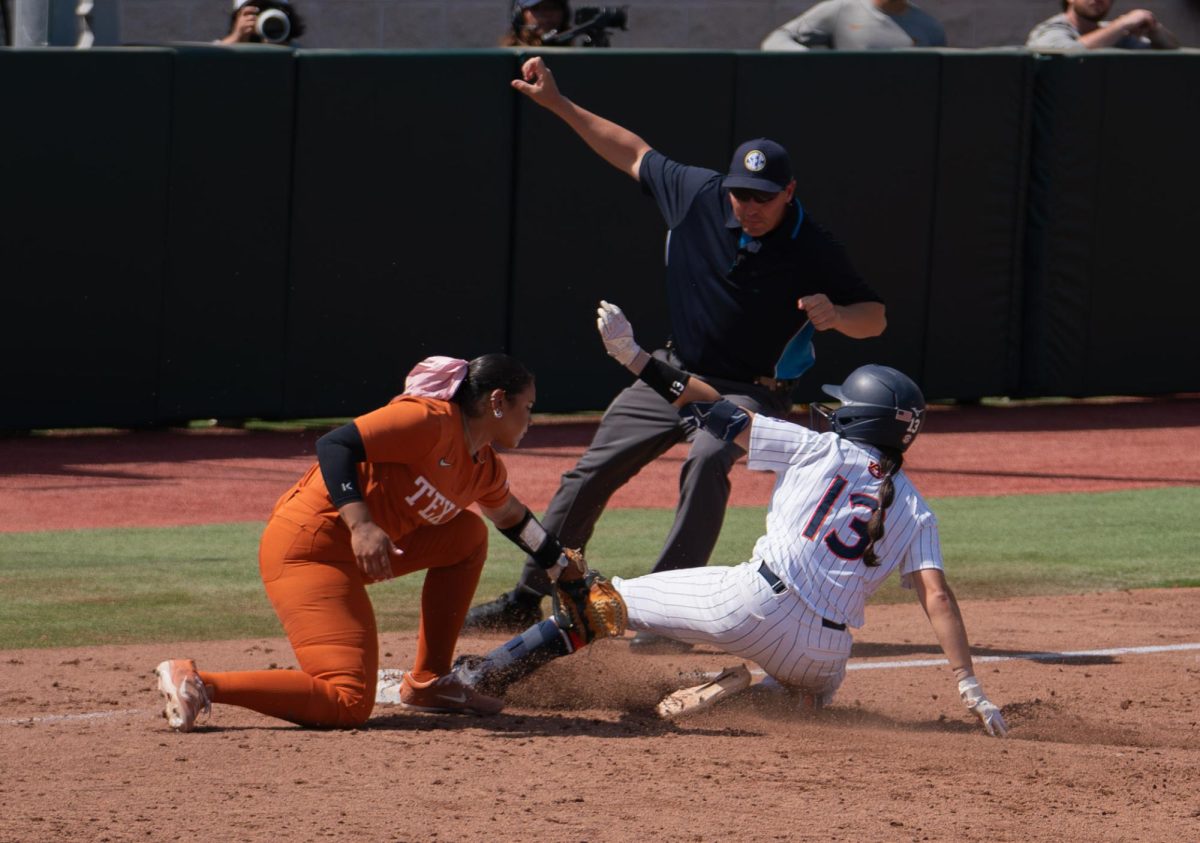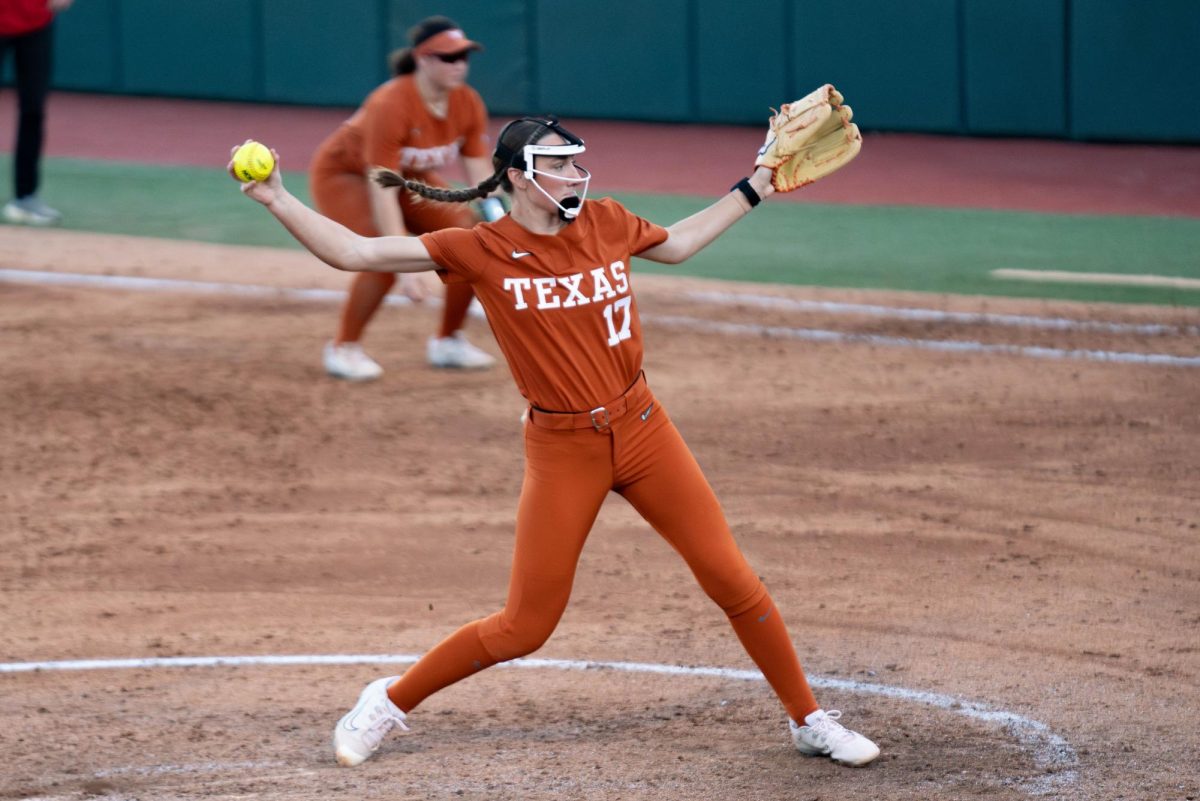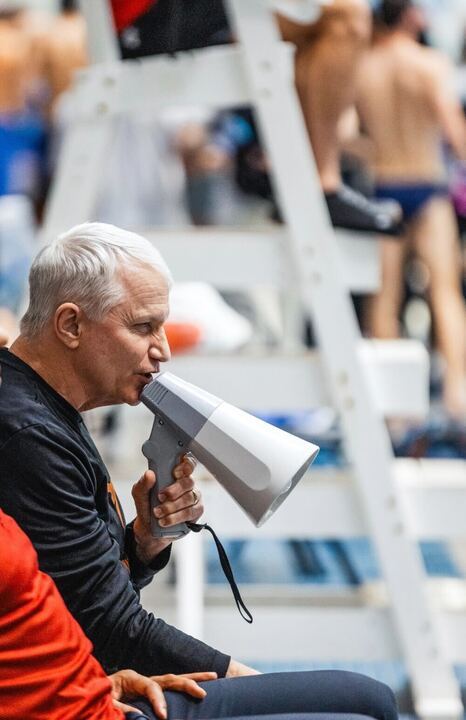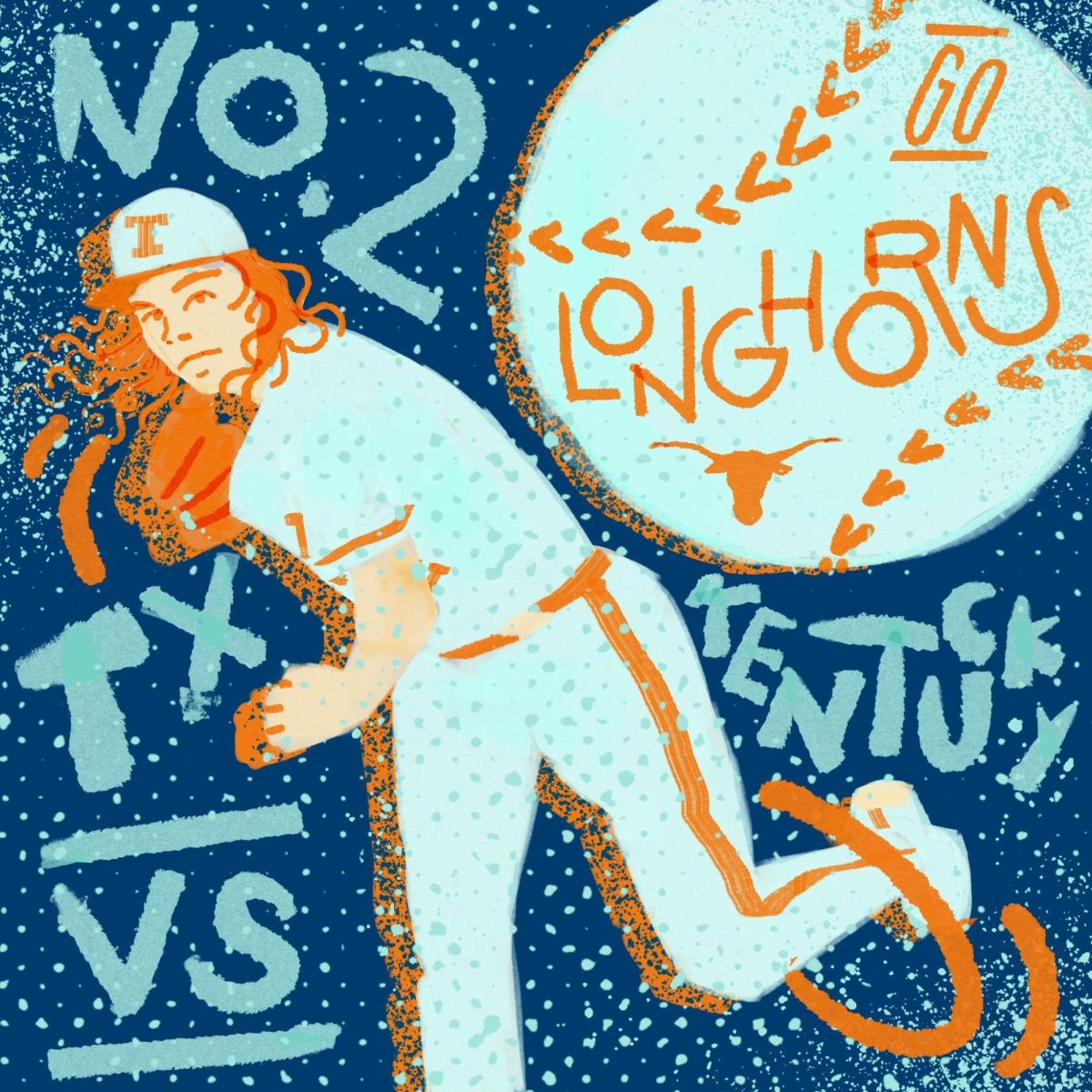Big 12 Commissioner Dan Beebe will, yet again, have a lot of explaining to do.
With Texas A&M and Oklahoma threatening to leave the Big 12 for the SEC because of potential recruiting conflicts that may arise with the launch of the Longhorn Network, Beebe will have to answer these colleges’ concerns or possibly watch his conference disintegrate for good.
The heads of both Texas A&M and Oklahoma have expressed concerns that Longhorn Network programming, namely the airing of high school football games, affords the Longhorns an unfair recruiting advantage. Dave Brown, vice president of programming at ESPN, said in a recent Austin radio interview that programmers would target contests — including one in Scottsdale, Ariz. — in which Texas recruits and commits were playing.
“High school games are very problematic,” said Texas A&M President R. Bowen Loftin after a meeting with the Aggie regents Thursday. “NCAA rules are extremely directed at recruiting functions. … If we have an unequal playing field for various schools, that we think is a problem. That creates uncertainty.”
Since the flags were raised, Beebe announced the high school programming will be temporarily disallowed until the NCAA can clarify the legality of airing those games.
“I think there is [concern] from my colleagues in other leagues,” Beebe said. “We would have concern if conference networks were doing that maybe in an effort to win favor with certain high schools.”
Texas athletic director DeLoss Dodds has been compliant with the initial ban and is trying to work with ESPN and the NCAA to make sure the Longhorn Network stays as intact as originally proposed.
“[ESPN is] trying to sell subscribers,” Dodds said. “And [Texas is] trying to follow NCAA rules.”
He believes the network will launch as planned and eventually open the doors for other schools to follow suit.
“In the long haul, us being able to do this gives the ability to A&M to be able to do this, Oklahoma to be able to do this,” Dodds told Sports Illustrated last week. “We’re building a new world. We’re living in a new world, and we all need to learn to live in it in a different way.”
Though all parties come across as cordial, the problem is much less friendly than their comments suggest. Analysts say Texas stands to lose many subscribers if high school programming is banned, which would mean less revenue. If the NCAA rules in favor of the network, the conference could see the Aggies’ and Sooners’ talks with other conferences heat up, thus threatening to break up any semblance of a traditional Big 12 conference.
Printed on 7/25/2011 as: Longhorn Network seen as unfair advantage by rivals




